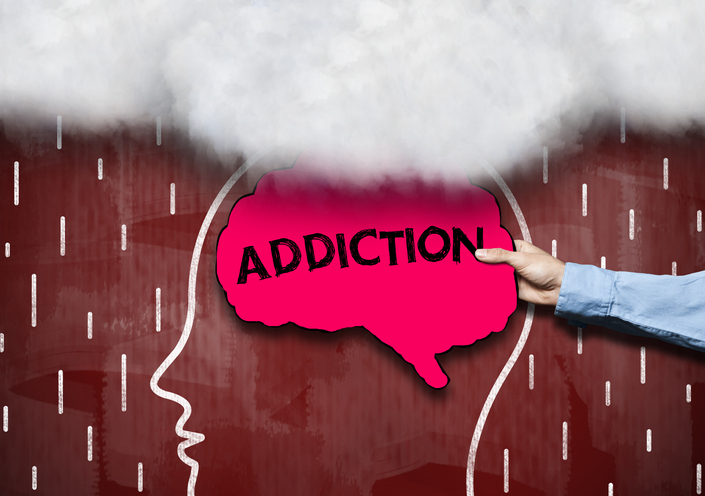 Whether you are ordered by a court to put down a substance, you need to quit to address a medical condition, or you’re just tired of spending all your time, money, and energy on mind-altering substances, changing your lifestyle is never easy.
Whether you are ordered by a court to put down a substance, you need to quit to address a medical condition, or you’re just tired of spending all your time, money, and energy on mind-altering substances, changing your lifestyle is never easy.
Over time, using becomes not only a habit that’s hard to put down, but can also become part of your identity. It effects everything from the way you choose to spend your time to the friends you have.
For many people, ending substance use can feel scary, overwhelming, and downright impossible at times. To make a long term change practical, you have to dig deep and get to the core of why you use in the first place, then replace that habit with a healthier alternative.
While it may seem overwhelming to think of a lifetime without drinking, smoking, or using ever again, you only have to experience life one moment at a time.
Don’t focus on forever, just maintain your belief that abstinence is the right choice for you and make the right decisions as they come along. To do that, you have to start with finding a solid reason to quit.
There are a million reasons to put down alcohol, drugs, or nicotine. However, not all motivators are created equal.
While your current circumstances may force you to put down substances in the short term, making a lifelong commitment to change will require rethinking your core values and truly changing the way you make decisions.
 Many people realize they have a problem when the people in their life start to tell them that they are not going to tolerate their substance abuse anymore. However, quitting for others rarely works.
Many people realize they have a problem when the people in their life start to tell them that they are not going to tolerate their substance abuse anymore. However, quitting for others rarely works.
The problem with using other people for your motivation is that you choice is tied to your relationship with that person. When that relationship ends or changes, your motivation may go away.
Quitting has to be a decision that you make for yourself because it’s what you truly want. If you’re not to that point yet, you may be more prone to relapses until you get there. However, if you keep walking the path, even through your relapses, you will eventually feel satisfied and proud of yourself for the accomplishment.
The exception to this rule could potentially be quitting for your children. Many new parents make extreme lifestyle changes to prepare to welcome their little one into the world.
In my experience, the only thing that would have ever made me give up my daily cannabis habit was having a baby. I didn’t want to feel like I had to be high in order to relax and enjoy him. I also wanted to have a sharp memory of all the time I spent with my son and my cannabis use was making life a bit foggy and numb. I wanted the full experience, and I’m so glad I made that decision.
Some people decide to quit substance use to prepare for a court case or as the result of a past criminal mistake. This reason played a major role in my decision to abstain from alcohol for the rest of my life.
Unfortunately, it took not one, but two DUIs before I was conscientious enough to make that decision. Thankfully, I didn’t kill anyone in the process of learning I had a problem.
As a result of my case, I was forced to wear a SCRAM bracelet that detected alcohol in my sweat for six months. I was also sentenced to six months of house arrest which forced my friends to evaluate whether they wanted to make the effort to come visit me or not.
Since many of my friends were people I partied with, very few of them chose to make the drive to hang out knowing that we wouldn’t be able to drink or use substances while they were over.
It was a blessing in disguise. I was able to see who really cared about me and reduce my friend group to the people who were the most supportive.
While quitting due to a legal situation can force you to pull the trigger, once you case clears up and you’re free to make dumb decision once again, you may find yourself teetering on the verge of relapse.
That’s why quitting for court doesn’t work in the long term for many people. You still have to find internal motivation to continue the change beyond the period of time you’re being supervised, or else you’ll just end up making the same mistake again.
Many people quit smoking or using substances when they are diagnosed with a serious medical condition. However, do you really want to wait until you have a deadly or chronic issue before you decide to make a change?
If that’s what it’s going to take to get you to see that you have a problem, then that’s what you’ll get. Hopefully, you can find enough motivation to change before it gets to that point.
 In my opinion, this is the number one reason to quit. When I was pregnant with my son, I knew I had to give up cannabis and nicotine so that he would be born healthy. But, with the mindset I was in, I was unable to make the change.
In my opinion, this is the number one reason to quit. When I was pregnant with my son, I knew I had to give up cannabis and nicotine so that he would be born healthy. But, with the mindset I was in, I was unable to make the change.
I found myself joining online support groups for mothers who smoked and giving myself comfort by reading the stories of other people who had indulged throughout their pregnancy and after without complications.
If that’s the kind of story you’re looking for, you’re bound to find plenty of examples. While it’s scientifically true that smoking is bad for the health of your unborn child and can lead to birth defects and low birth weight, there are plenty of babies out there that are born healthy and heavy to mothers who smoked.
While these stories comforted me for awhile, I knew I was playing a risky game. Unfortunately, due to my level of addiction, the stressors in my life, and my struggle with depression and anxiety, it took me until month 7 of my pregnancy to finally put the lighter down altogether.
You’re probably wondering what changed. Basically, I was so fed up with my own self talk and guilt that I could no longer enjoy the feeling of being high. Instead of relaxing me, I found myself overthinking and more anxious than when I started. I was finally at the tipping point where I couldn’t convince myself it was all going to be okay anymore, and that’s when I made the final and lasting decision to quit.
One of the best things to do to maintain your sobriety or abstinence is create new goals for yourself. Think of the things that weren’t possible for you when you were using.
Consider a career in healthcare, plan a vacation you wouldn’t have been able to afford, and dream of a future that is much brighter than what you have now.
It may be helpful to make a list of all the things you will be able to accomplish and enjoy once you achieve sobriety. It’s a whole new world once you quit and the possibilities are endless. If you have something on your mind that’s worth working towards, it’s easier to stay on your path.
The next step to solidifying your new lifestyle is establishing the group of friends and family that will be there for you. This happens in two phases. The first is cutting out the people that you can’t be around anymore.
For each person, the bridges you need to burn will be different. Some people are able to stay in a relationship with someone who is still using while they walk the road to abstinence. I envy these people.
However, it’s much more common that you will need to surround yourself with people who are also living a clean lifestyle. This is particularly true in the early days. Being around people that are using when you’re choosing to abstain is a complex and emotional experience.
You may feel jealous, agitated, out of control, or angry. The easiest way to combat those emotions is avoiding the trigger altogether.
So, how can you establish a support network, particularly if your current friends and family all indulge?
Many people find the group they need through meetings like AA, NA, NAMI, or church. However, you may find it easier to reach out through online groups targeted at sobriety. While the people you meet online may not be in your area, they can still be there for you by answering the phone when you need someone to talk to or responding to your message when you’re in a precarious state and are fighting the urge to relapse.
The final step in solidifying your new lifestyle will be finding ways to reignite your fire and develop a lust for life. Substance use helps to numb all of the real feelings that you experience - both high and low. Over time, your brain no longer craves positive experiences to feel good and starts craving substances for pleasure.
While it takes time for your brain to rewire itself once you quit using, you can help the process along by reinvesting in yourself.
Think about all of the hobbies that you had before you started using and give them another try. You can also branch out and try activities that never even occurred to you while you were using.
I know a lot of people who have started rock climbing once they’re sober. It’s great because it requires your full focus to negotiate your next hand and footholds as you work your way up a climbing wall or mountain. It also comes with a nice rush of satisfaction once you get to the top.
Plus, it has the added benefits of helping you get back into shape and will help you meet people who are upbeat, motivated, and most likely living a healthy lifestyle.
You could also try a body building goal or workout routine. The exercise will release natural endorphins that make you feel peaceful and content and the increase in blood flow will allow your body to recover from your past substance abuse more quickly.
Many people who put down substances and pick up exercise find themselves similarly addicted to the gym.
My final advice for people who are trying to overcome an addiction is to keep the faith. No, I’m not talking about faith in a higher power, although many people swear by that approach too.
I’m talking about the faith in yourself - the belief that you can and will overcome your addiction and that your body will over time readjust to feel even better than it did when you were using substances.
The longer you walk this road, the easier it will become. While you may struggle with doubt and temptation from time to time, those moments will become fewer and further in between as life goes on. Just keep taking it one moment at a time, then one day at a time, until you’ve become the person you always intended to be.
I wish you a lot of joy and healing on your journey. You got this.